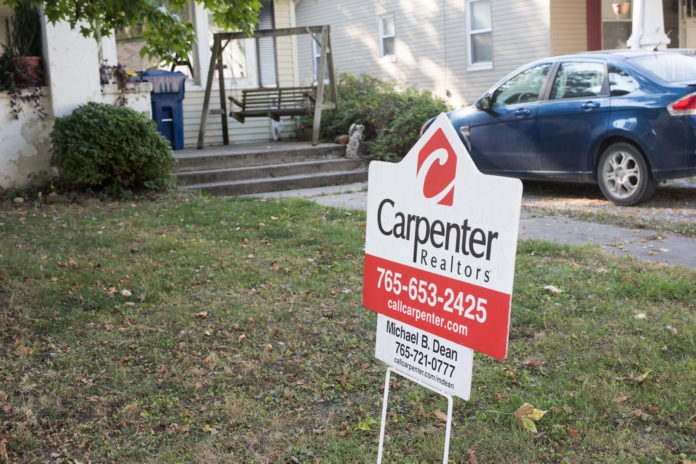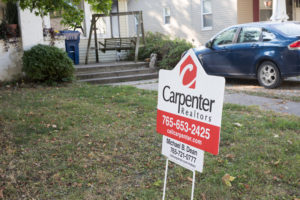

The notion of the “DePauw bubble” is very real for the 65 percent of DePauw University faculty and staff who currently reside in the 46135 area, which includes Greencastle.
A majority of faculty members choose to live in or around the Greencastle area, while others commute. Anne Harris, vice president for academic affairs, has lived in Greencastle for the past fifteen years and has experienced the local community through her children. “Making Greencastle home happens through relationships, it happens through life events, whether they are births or deaths, but that’s when you know who your community is, is in those moments,” Harris said.
For other faculty members, commuting to DePauw can be inconvenient. Ashley Puzzo, professor of philosophy, lived in Lafayette during his three years as an adjunct professor at DePauw. However, Puzzo decided to move to Greencastle this year to fulfill a year-long, full-time appointment at DePauw.
“It’s only the one year appointment, and I want to take full advantage of this year, so that means making everything in my life as efficient as possible so that I can be as productive as possible,” Puzzo said.
Harris noticed Greencastle is socioeconomically diverse, but lacks racial diversity. In a 2015 study supported by the U.S. Economic Development Association, it was reported that Greencastle was 91.7 percent white, and had a poverty rate of 12.6 percent.
“I think there is an important contrast between Putnam county and DePauw University,” Harris said, adding that even though a majority of DePauw students are white, there is more diversity with people of color and international students than that of Greencastle.
Faculty decisions to live in Greencastle or elsewhere are influenced by varying factors, such as family, education and convenience. For Scott Spiegelberg, professor of theory and musicianship, family and education were two large factors in his decision to commute to work from Zionsville.
“[The Greencastle school system] certainly was a concern,” Spiegelberg said. “The schools when my kids were young in Greencastle were fine… but from talking with colleagues who had older kids, the limited opportunities in both the middle school and high school just were things that I was concerned about.”
Spiegelberg also mentioned the DePauw bubble saying, his ability to commute a greater distance is a point of jealousy for some faculty members who feel that they can't escape the University's parameters.
Teaching load, frequency of classes, teaching status, and personal preferences are other important factors Puzzo believes affect whether it is worth it for faculty to commute or not.
The decision to commute or live in Greencastle is an individual choice for each faculty member, and doesn’t necessarily affect their status. “I don’t think living in town or living out of town is a measure of a faculty member’s engagement,” Harris said.
Harris said the most important idea for her is,“that everybody brings their best selves to their teaching and their collegiate work,” whether that means commuting or living in Greencastle.
